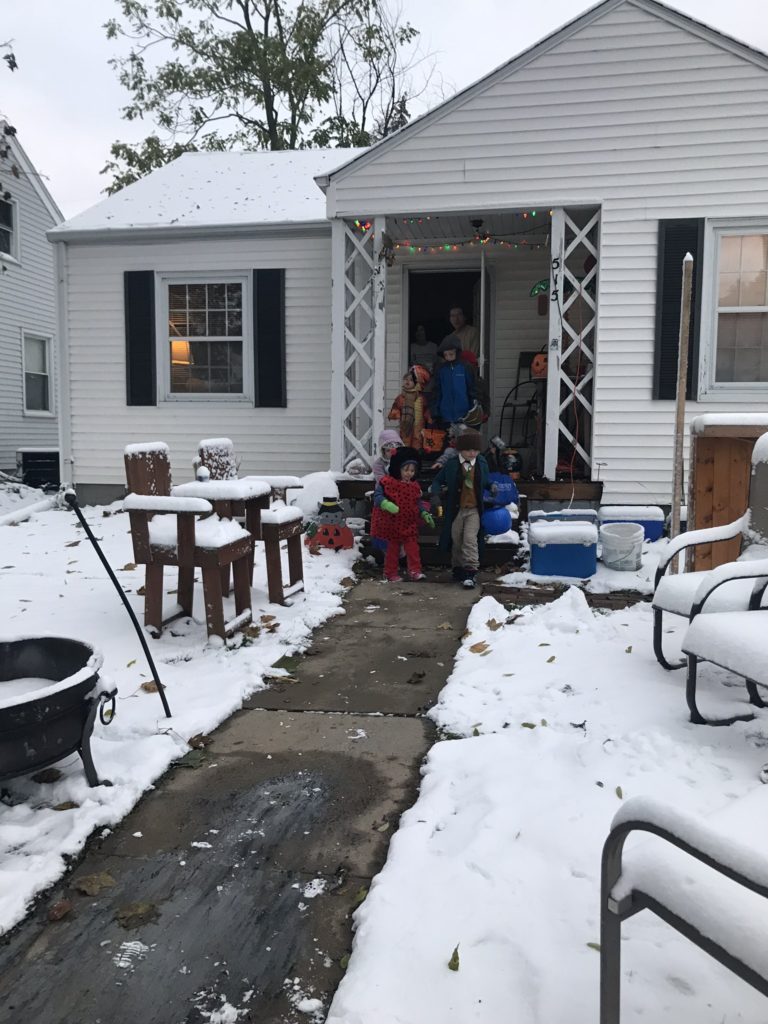
Self-improvement is always on my mind. It’s echoed in the blogs I read, the social media I consume, and the conversations I have. And while self-improvement is a worthwhile goal, I think an equally important pursuit is to approach life with a spirit of contentment.
M made a comment recently after I told him I would be seeing someone’s house for the first time. He said, “Oh uh, just remember our house is just fine. Don’t go comparing again.”
M’s words stopped me in my tracks.
Did I really have a tendency to see something new and instantly question my own lot in life?
I felt bad for bringing that attitude into our home. M was right. Our home is warm and inviting and one that we can afford in both lean and more prosperous times.
It’s altogether too easy to see what others have and instantly take what we have for granted. And it’s even easier to compare the best days of others’ lives to the most average days of our own.
I often fall into the comparison trap without knowing anything about the person I’m comparing myself to. If I’m jealous of someone’s new home, new car, recent vacation, ability to buy seemingly whatever she wants whenever she wants, I’m failing to acknowledge that her story is not my own (and it’s not meant to be!). Most importantly, I’m failing to admit that I don’t really know what’s going on in her life.
Maybe she’s been saving up for years to take that dream vacation with her husband. Good for her! Maybe the couple is overwhelmed with debt and exhausted from trying to “keep up with the Joneses.” Maybe she’s received an inheritance and despite her newfound financial freedom, she’d give anything to have more time with her loved one.
We just don’t know what’s going on with others, so it’s useless to spend time comparing our lives to theirs.
Contentment, when it comes to personal finance or otherwise, means actively reminding yourself that what you have is good enough.
It means understanding when you have the money to upgrade a part of your life, and accepting when you truly don’t.
We drive two old cars with high mileage, but enjoy not having a car payment. Can we afford a brand new car right now? No. So I choose to be content with the cars that get me safely from point A to point B.
Do I really want to have a higher mortgage that would restrict our ability to save, give, and spend with intention? No. So I choose to be content with the home we have.
If you can’t have it all at once, and most people can’t, you’re always going to have to be content with some area of your life.
I read a question once that I think about often: Could you be happy if you knew that nothing in your life was going to change?
That’s huge, right? There’s nothing wrong with working towards change, or desiring it in one area of your life or another. But there’s also something really powerful about choosing to be content, no matter your life’s circumstances.
M and I are both in a period of flux right now with our jobs. It seems like we’re waiting with bated breath for his next assignment and a more defined role for me.
But all the while I’m trying to hold onto the idea of contentment. To stop wishing away this somewhat uncomfortable, uncertain time and instead to look around at what I have and say, “This is good enough.”
As we approach the holiday season, contentment will be even more on my mind.
This year we’re focusing less on things and more on experiences, so will emphasize family time over endless gifts for the kids. I find myself questioning this rationale thinking, “Will my kids have enough?” “Will they feel loved if they don’t have as many toys as last year?”
But then I stop and think about how Margaret takes my hand and says, “Play with me, Mommy.” Or how Graydon sits down next to me sweetly and asks, “Mom, can I tell you something?”
And it dawns on me that my kids already know the secret to contentment: presence.

